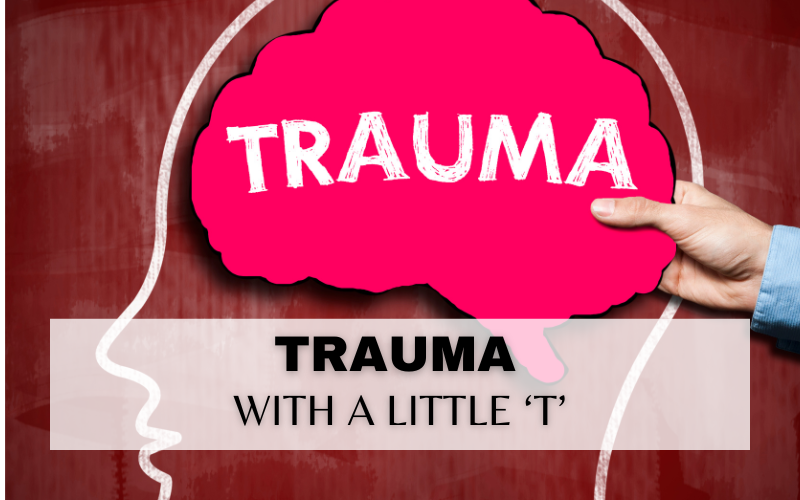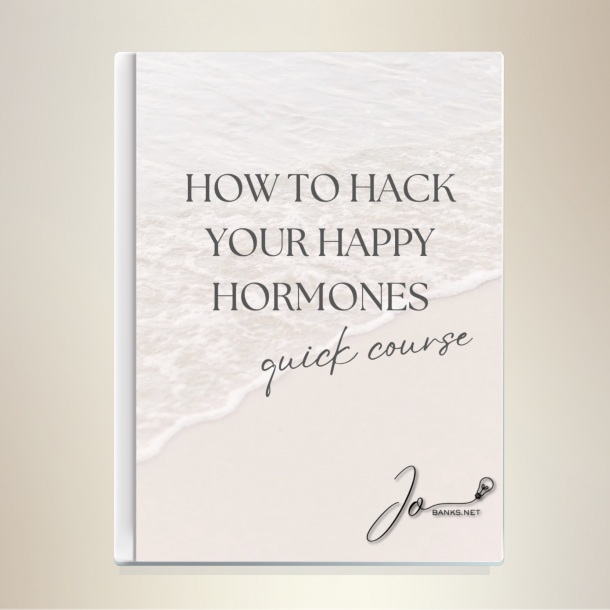In my previous article, ‘Trauma with a Little ‘t’ – Part 1’, I discussed micro-traumas, small rejections or disappointments we experience, particularly in childhood. I talked about what they are and how they become encoded in our nervous system. If you haven’t seen it, you can read it here.
How micro-traumas affect us in adulthood
The small rejections and disappointments we all experience in childhood may seem inconsequential. However, with repetition and no safe place to explore emotions with an adult caregiver, they can hugely impact us in adulthood.
Some of the most frequent issues that I see in my coaching practice that can be traced to childhood trauma with a little ‘t’ include:
- Repeatedly hearing ‘children should be seen and not heard’ = struggling to speak up as an adult and validation/attention-seeking/people pleasing behaviours.
- Constantly being ignored = believing that your opinions are unimportant, so you don’t speak up when there’s a problem.
- Hearing persistently raised voices and arguing = believing that conflict in relationships is inevitable or being scared and avoidant of conflict.
- Being laughed at in the playground or when you spoke in front of the class = feeling that public speaking or raising your concerns within a group is unsafe.
- Getting rejected by your childhood sweetheart/friends/family members = resisting relationships now (believing them to be unsafe), can lead to difficulty making friends/meeting romantic partners and ultimately, loneliness.
- Being regularly shouted at or unfairly punished = feelings of unworthiness, anxiety, overwhelm, that the world is against you as an adult.
- Frequently hearing things like – ‘you’re stupid’, ‘you’re an idiot’, ‘people like us can’t do/have things like that’, ‘get out of my sight’, ‘your dad/mum/grandparents don’t like you’, ‘your mum/dad doesn’t want us’, ‘you can’t do that, you’re not [fill in the blanks] enough’, ‘I hate you’, ‘you’re a loser’.
Repeatedly hearing things like this as a child can result in feelings of low self-worth, confidence issues, relationship problems, people-pleasing, anger, resentment, frustration, anxiety, depression, overwhelm, burnout, etc. in adulthood.
In addition, as I mentioned in the previous articles, we copy and repeat the behaviours we witnessed as children for the rest of our lives. For example, suppose we were raised by emotionally immature parents (which many of us were – it’s extremely common). If we don’t consciously decide to do something different, we will unconsciously repeat the same patterns with our children. The behaviours we witness as children (and unconscious absorb) can go back many generations. It’s what’s commonly referred to generational conditioning.
Despite your programming, you do not have to be held hostage to your old programming. You can change your thoughts and behaviours. However, by far the most challenging part is recognising what you’re doing that’s no longer serving you.
I hate the term, ‘You can’t teach an old dog new tricks’ as it’s scientifically proven to be untrue. But, when someone says that to me, reading between the lines, I hear, ‘I acknowledge what you’re saying, but I don’t want to put in the required effort’! EVERYONE can change; it’s called neuroplasticity, and we all have it. But, we must be aware and make a conscious decision to change, taking repeated action to reinforce the new behaviour enough that it becomes a habit.
In the following article, I’ll explain my three-step process for personal change, recognising the thoughts and behaviours that are not serving you, plus how to transform them.



